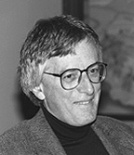
DYLAN ROLLS A BLANK STONE
by Ira Lightman
Tempest was like the rest of them. The songs
just fall. It’s not the album mind. To make
religious takes a concentration – to pull
that off 10 times, a record sense . . . the Time
beginning playing ages… people hear
to play for Mind weren’t meant for work.
There enters scene unnoticed on and on.
Forever through the centuries. Trick
connecting Sixties Fifties, Woodstock War.
The Book of Acts, the town to roam was woods
and sky and rivers, streams, and summer, spring,
the culture circuses, preachers, bands
and malls and all the rest. You know, you grow,
it stays in you. I left, which was, I guess,
I saw and felt of who I am, I guess.
Those days were cruel and other stuff to me.
I saw the death of what I love and life.
Performer doesn’t feel at all in this.
Rephrase your questions, think of new ones. No,
I got it here, was hauling ass from back
of pack on side of road, to town for help.
I’m not like you. I’m not like him, real proof
I write the songs I sing and Dylan’s here!
Go to the grave site. Jerry blew my mind.
For long grow tall, leaves fall, and die. Things change
a gold watch out of steam to learn to do.
Your soul redeemed, a high, a low, but few
are chosen, people, never find the real.
A lot of people don’t. Habitual
for propaganda purposes. And Ford.
from both the North and South, the Southern states,
all kinds of stuff like that, the shot was fired.
It was on streets? John came from hinterlands.
We heard the same things growing up. Our paths
had faced adversity. We grew his aunt
was fenced off Britain, there’s history heads
if you’re a Brit. Don’t worry, Mum, to hang
about. How could you not? It’s endless stuff
I thought was close to lives of hardship blues.
Tempest is what I went with, written songs.
It’s sad – it is. It’s sad for me, for them.
Oh, yeah, in folk and jazz. That certainly
is true, for me and Henry Timrod. Rot.
And Wussies, pussies. See ’em in their graves.
SOURCE: Bob Dylan interview, Rolling Stone (Sept. 27,2012).
NOTE FROM THE AUTHOR: I love Dylan but I’m also a plagiarism sleuth, and I find this the most chicken interview. I misread a friend who was sending round the call [for submissions from Silver Birch Press, and thought] that it had to be in blank verse. So I combed the interview for iambic pentameter possibilities.
ABOUT THE AUTHOR: Ira Lightman is a poet. His double column poems are in Trancelated at www.ubu.com/ubu. He makes public art, organizing a community’s poems into visual art. He broadcasts on BBC Radio 3’s The Verb.












